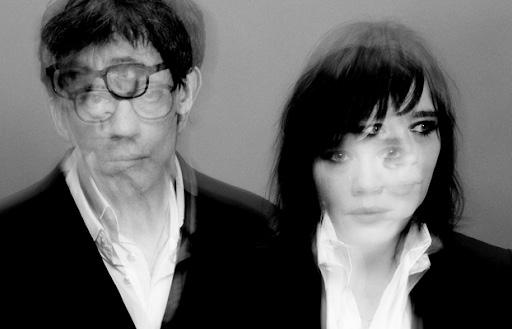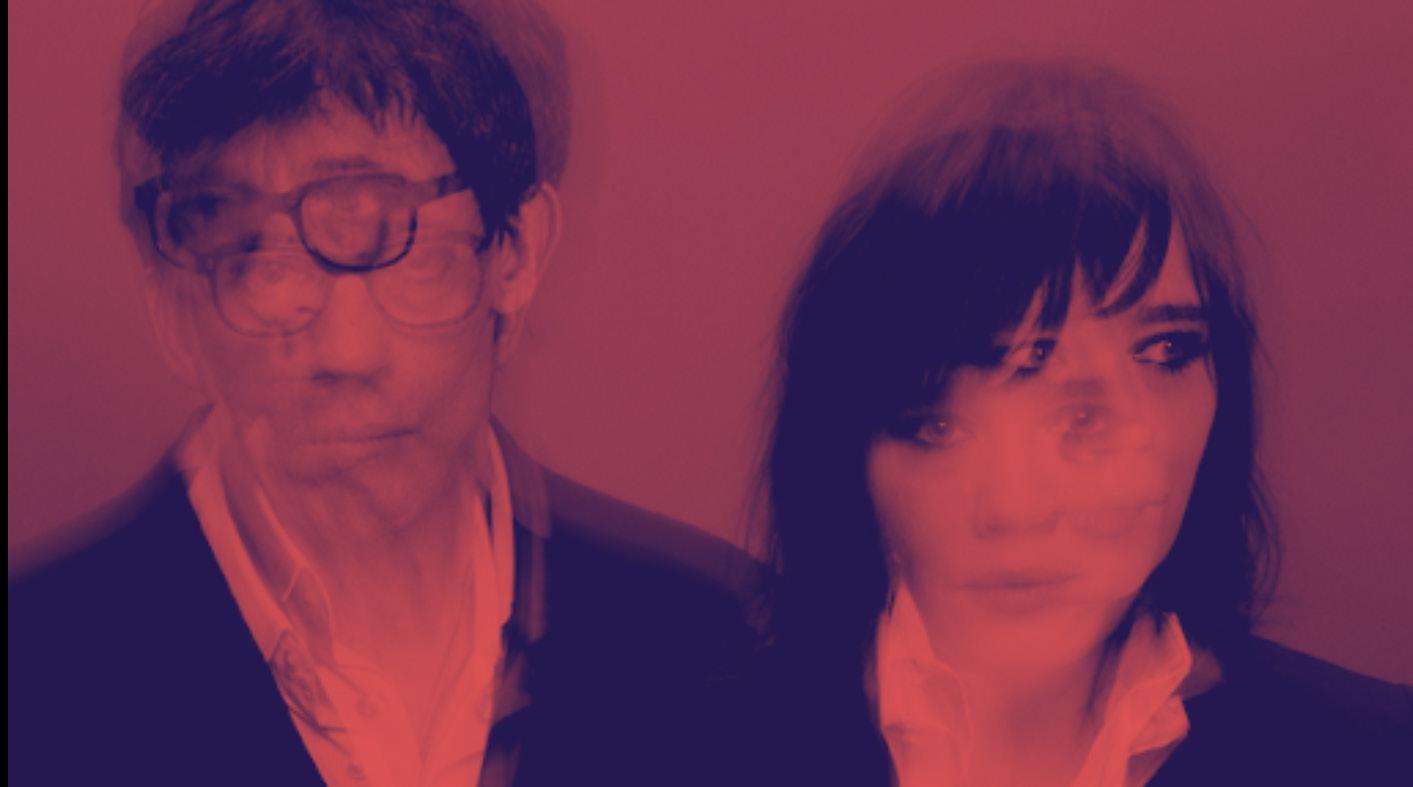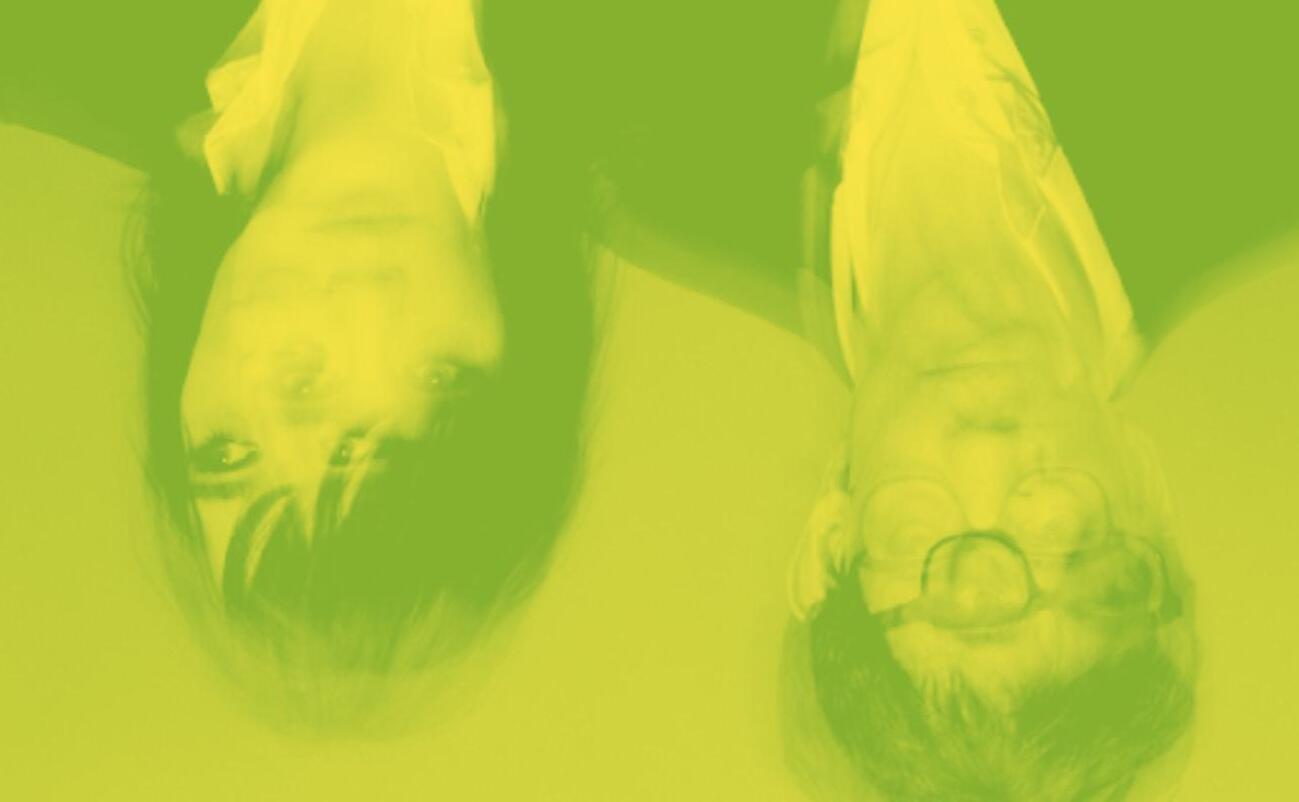
5 minute read
The Waeve: In conversation with Graham Coxon and Rose Elinor Dougall

Blur guitarist extraordinaire Graham Coxon and singer-songwriter Rose Elinor Dougall sit down to discuss their new exciting project The Waeve
Advertisement
Sarah Taylor Music Editor
When Graham Coxon and Rose Elinor Dougall caught up for a long-overdue jam session, what started off as a jokey one-liner about potentially recording a song together soon spawned the tumultuous project that has become The Waeve.
Coxon is considered one of the greatest guitarists of his generation, and an integral member of Blur, spearheading their reinvention. From their mid-90s Britpop, to their late-90s experimental alt-rock, Blur has produced eight acclaimed solo albums to date. Dougall worked with The Pipettes at a young age, and has garnered further critical acclaim from her avant-garde solo career, as well as being enlisted by producer-extraordinaire Mark Ronson on his Record Collectionalbum.
Sitting down to speak to Coxon and Dougall over a shaky Zoom connection from their North London home, their chemistry becomes instantly clear.
really well” – we made each other laugh. The music felt intense and at times it felt like we were taking a lot of risks lyrically. We were really dealing with the idea of looking forward. Past the bleakness and into the unknown”.
When it comes to the song-writing process, Rose reveals: “Graham might start with a little chord sequence and I’d re-interpret it on the piano and we’d come up with a melody. We just kept adding layers and layers of ideas. Just before we took it to James Ford ( Arctic Mon - real plan to create a concise set of songs – meant the duo were “writing to satisfy ourselves and writing music we were excited by”. isn’t really a lot of encouragement. In that way, it can be quite competitive. I didn’t feel like there was any competition between us at all. It felt very equal. Creatively and supportively.”
It was a learning experience for both parties. Rose tells me that “Graham works very quickly. [she turns to him] You don’t tend to overthink things apart from when it comes to your guitar [both laugh]. It’s great energy to have and stops you from getting too tight and self-limiting”.
“Writing to satisfy ourselve s and writing music we were excited by
you need to have multi-faceted music”.
These cinematic moments prompt me to wonder whether Dougall will, like Coxon, venture into the realm of film and television scoring. Coxon’s recent work on the soundtrack for Channel 4 and Netflix’s The End of the F***ing World has been some of his most interesting and commercially successful solo work to date.
The Waeve “formed on a bit of a whim”, with Coxon and Dougall linking up after playing at a charity benefit show for Lebanon in December 2020. “I’d met Graham 15 years ago and been a long-time fan of his work. I made a little joke at the end of the night – that we should write a song together and then that’s what happened. We wrote to each other for quite a long time about things that we loved”.
In early 2021, when a third lockdown swept the UK leaving the artists “both feeling quite jaded and despondent” they met up and essentially “gave each other a kick up the arse to make something. There wasn’t a big plan, and we didn’t expect this project to unravel into a big thing. But it felt like we were kindred spirits when we started working together”.

Graham continues: “It felt so weirdly natural. It was a bit nerve wracking at first because I’d never really collaborated with one other person in such close proximity. We were in a room that wasn’t very big and just started to write. Luckily, we just seemed to [he searches for the words and settles on] “get on keys’ long-time producer) – we did a lot of production ourselves and we had to break them down. The songs were occasionally going in too many different directions. We didn’t want any barriers when we were making the music but then stepping back, we realised what needed to be there for a reason. Nothing superfluous. It wasn’t just self-indulgent. It needed to have form and purpose. But still feel instinctive”.
Graham leads on from here:
“When Rose joined in on the chord sequences, it was a lot more interesting, harmonically, what she was doing with the piano. Within there we would see more melody. I’d have one and sing it on the same song later. The songs were really developing in a few minutes and ending like a different song entirely. It was a way to consciously offload a lot of our shit”.
The spontaneity of The Waeve – working without deadlines or any
Graham continues: “Considering we didn’t know each other that well, we were actually really supportive and encouraging. I saw in Rose someone who could maybe do a lot more with her voice than I’d heard her do on records. Maybe I’d watched something that was live and noticed something about her voice when she pushed it and wanted to hear a bit more of that. But we both weren’t the most confident in all areas. We knew what we could do well but there was a periphery of things we were a little unsure of”.
“[Rose] was really encouraging about my singing as well as guitar playing. I’ve been in groups with blokes for a long time and there
So how much material didn’t make the cut? Graham reveals: “Quite a lot. Some of the songs lost control and we didn’t quite reign them in in time for the album. We were producing a lot of music and sometimes we’d cut a whole section out of a song. It’s difficult to know whether to go back to things or move forward.” Rose chips in:
She describes the end of ‘All I Want to Know’ as feeling “like a French film, as if everyone would be walking off into the distance. It’s got a nice hopeful yet melancholy feeling. It was a really brilliant thing for me to be able to arrange the strings on this record – I had free reign. This was one of the things I loved the most about making the record, and then getting to see it performed by some brilliant players – the Elysian Quartet came and played for us. There is a filmic quality. I think it’d be a really great soundtrack. I’d love to make a film to go with it. And to answer your earlier question, yes, I’d love to write music for film and TV”.
Graham adds: “It was such fun to make. There’s a lot of romantic feeling in it. At times we relied on folkloric-type taletelling as vehicles for some of the heavy feelings and put them in a more supernatural space like with ‘Undine’. It was quite overwhelming at times emotionally. It could be exhausting work if we’re getting real! [he laughs] But it was also excellent fun! It’s got everything in it, crystallized, as it happened”.
“My instinct is that all that music belonged to that time, and I’m really interested to see what happens when we reapply ourselves now. It was a very fruitful time”.
The Waeve is a record brimming with contrasts. The latter tracks ‘Alone and Free’ and ‘You’re All I Want to Know’ are light and romantic, embellished with sweeping strings that make for a real cinematic finish. And yet in other moments, the music is dark and unsettling – an emotional roller coaster of sorts. This, Rose confirms, was intentional. “The music I’m interested in making is emotionally available and human. Inevitably,
In the midst of the intense recording process Rose jokes that the pair would unwind with a “bag and a cup of tea or wander out amongst the post-apocalyptic landscape of north London.” “I was listening to a lot of Talk Talk ”, Graham chips in.
It wasn’t all doom and gloom though – “Graham’s really funny and I think I’m quite funny too”, Rose smiles. “You are”, Graham adds. “So, we did have a laugh as well. I hope there’s a bit of fun in the record and it’s not entirely heavy”.
Graham: “It’s definitely fun –even the heavy stuff. We’re having fun with sound, there’s a sort of mischief about it and I hope that shows!”.
The Waeve will perform at Manchester’s Band on the Wall on March 20. Remaining tickets are available, so hurry to catch Coxon and Dougal live!









